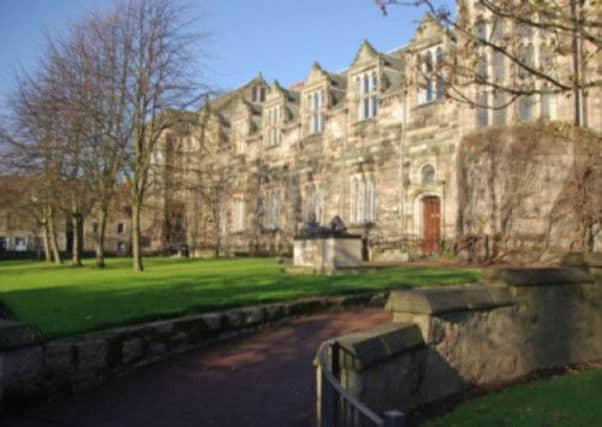Aberdeen University under fire over whale slaughter


The International Fund for Animal Welfare has accused scientists at Aberdeen University of promoting the slaughter of whales by co-operating on projects with the Marine Research Institute in Iceland.
Iceland, along with Japan, is one of few countries that allow whales to be killed for scientific purposes.
Advertisement
Hide AdAdvertisement
Hide AdIFAW, which campaigns for an end to so-called “scientific whaling”, has urged Aberdeen University officials to sever its links with the Icelandic whaling industry.
“The UK has been and should continue to be a world leader in whale conservation. Shockingly, the University of Aberdeen has instead been promoting Iceland’s whaling via its research and this is unacceptable,” said Robbie Marsland, UK director of IFAW.
“We have asked university officials to stop providing academic cover for the cruel and abhorrent practice of slaughtering whales.”
Despite a global ban on commercial whaling put in place by the International Whaling Commission in 1986, nations such as Iceland and Japan take advantage of a provision that allows the animals to be killed for scientific research. Critics claim that because approval of research permits and catch limits is granted by the nation that applied for them, there is no requirement or opportunity for international scrutiny.
Anti-whaling campaigners insist that scientific whaling is simply commercial whaling by another name and research permit stipulations for carcasses to be used rather than wasted make them little more than a licence to sell whale meat.
Killing whales for research has been widely condemned in academic journals such as Science and Nature and critics say it provides little useful information that is not easily obtained by non-lethal means.
Members of another conservation group, Wildlife and Countryside Link, first contacted Aberdeen University after it was listed as a “proponent” of scientific whaling in key documents distributed by the IWC, the body responsible for the regulation of whaling and conservation of whales.
Last night a spokeswoman for the university denied that the institute was supporting scientific whaling.
Advertisement
Hide AdAdvertisement
Hide Ad“The University of Aberdeen is not a proponent of scientific whaling,” she said. “We do not advocate whale sacrifice in support of our scientific research.”
Patrick Ramage, director of IFAW’s global whale programme, said: “The University of Aberdeen’s argument to us was that since the whales they used were already dead, there was no ethical issue at stake and staff involved did not even refer the issue to their own ethics committee.
“But by assisting in this way, the University of Aberdeen sullies itself with slaughtering whales in the name of science and makes further whaling by Iceland, and indeed Japan, more likely.”
The university spokeswoman stressed that no cash had changed hands for the Icelandic research and all procedures followed Home Office guidelines for animal experiments.
Gisli Vikingsson, head of whale research at Iceland’s MRI, said that scientists from Aberdeen had co-operated with the MRI on whale research, including the use of data collected by the MRI for a PhD project.
In 2003, Iceland began a study based on catching 100 minke, 100 fin and 50 sei whales each year over two years – a project reviewed by the IWC. Fin and sei whales are both listed as endangered species.
The minke research, which began in August 2003, involved killing 38 animals for studies into feeding habits, energy use and variations in numbers.
The decision by researchers in Aberdeen to take part in the on-going project appears to be based on an incorrect assumption that Iceland’s whaling had been supported by the IWC, according to Link members who met with university representatives to urge them to end their involvement with Iceland’s whaling activities.
Advertisement
Hide AdAdvertisement
Hide AdTo catch a whale hunters chase the target animal and shoot it with a grenade-tipped harpoon fired from a powerful cannon. If the whale is not killed instantly by the explosive tip, another harpoon may be used or the it may be shot again with a rifle.
The UK is among many countries with a strong stance against commercial and scientific whaling. With the support of New Zealand, Australia, itself a former whaling nation, has asked the International Court of Justice to withdraw all permits for whale hunts from the Japanese fleet.